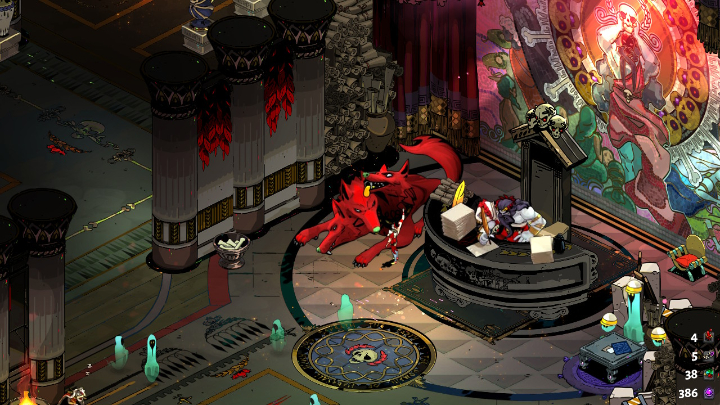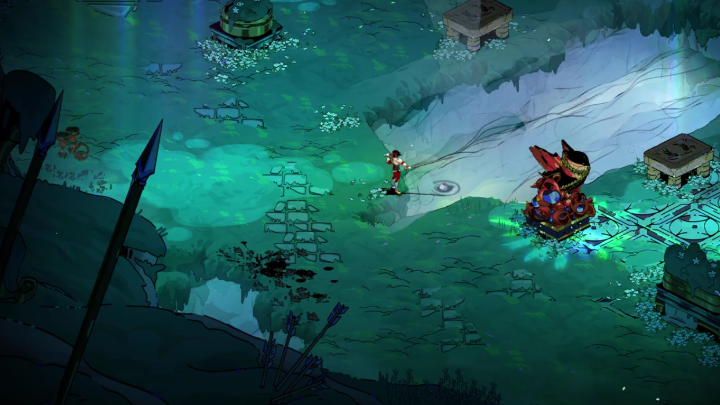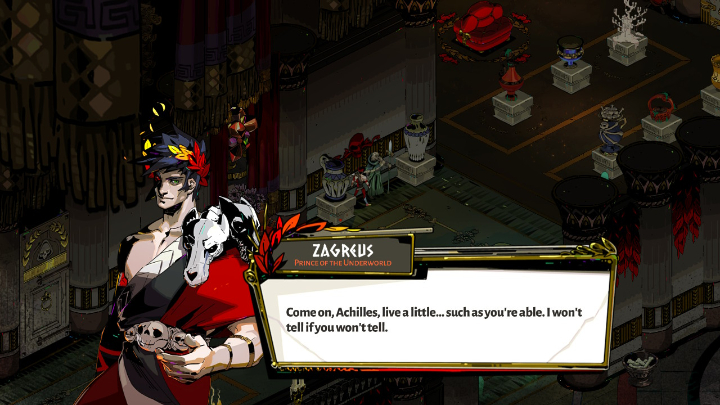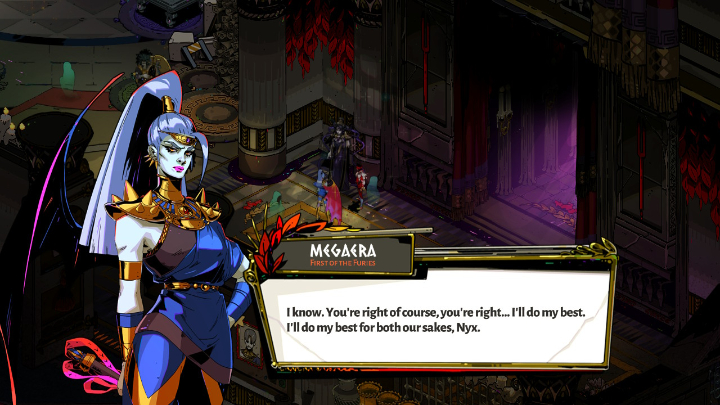
Like many roguelikes, Hades is a game of endless repetition. You play as Zagreus, the rebellious son of Hades, and you have only one mission: to escape the Underworld. In order to escape, you must fight your way through various realms and face off against fearsome enemies. While it’s possible to escape on your first try, it’s more likely that you’ll die again and again and again.
But while some roguelikes make you feel like a failure, Hades always makes you feel like you’re one step closer to your final goal. Although you’ll lose temporary power-ups at the end of a run, there are several in-game currencies you can use to purchase permanent upgrades. You can unlock new weapons and upgrade each one until it reaches its maximum potential. If you play the game with the God-Mode setting on, your damage resistance will increase by 2% each time you die.
Beyond that, Hades makes you feel like there’s always something new to discover. The number of unique voiced lines is staggering. In fact, the game contains more words than The Odyssey and The Illiad combined. You’ll improve with each escape attempt, but you’ll also discover new lore and fresh gameplay features. For example, I was a good 10 hours in before I realized that you could fish.

Hades was developed by Supergiant Games, an indie studio with an excellent track record. Their three previous titles, Bastion, Transistor, and Pyre, all released to critical acclaim. With Hades, however, the studio decided to take a different approach.
“We were really interested in a game that we could like develop out in the open once it reached a certain point,” said Greg Kasavin, the creative director of Hades. “And make it the best game it could be by gathering feedback along the way by building it in partnership with the community.”
I’ve never played the early access version of Hades, which debuted in December of 2018, but the version officially released this year is incredibly polished. The voice acting is phenomenal, and the visuals are absolutely perfect. The combat system is simple, but it offers an amazing amount of customization and depth. It’s hard to imagine a way to make Hades any better than it is right now. It’s one of the rare games that feels genuinely perfect.

Roguelikes have been around much longer than Hades, but this feels like a game that will transform the genre. Hades doesn’t make any dramatic changes to the core formula, but it finds a way to give you a consistent sense of progress even in the face of repeated failure. Dying is never really frustrating, and victory always feels attainable.
Hades has an addictive gameplay loop, but it doesn’t rely on that alone to keep you playing. In between loops, the game doles out small slices of story in tantalizing pieces. Every time you return to the Hall of Hades, you’ll get to know the characters a little better, and you’ll feel a little more involved in the game’s world. Whether you want to chat with the last boss you beat or pet Cerberus, Hades finds ways to make defeat feel exciting.

Hades isn’t just one of the best games of 2020; it’s one of the best roguelikes of all time. Early access has been the subject of criticism, but Hades is a testament to what it’s possible to accomplish with player feedback. Over the next few years, I expect to see many Hades imitators, and while those games might not live up to Supergiant’s masterpiece, I’m definitely looking forward to them.